2016 49th Annual Meeting
Systems Biology of Reproduction
16–20 July 2016
Sheraton San Diego Hotel & Marina
From the Program Chairs and President of SSR 2016
“Welcome to the beautiful city of San Diego!
We invite you to join us and fellow researchers from around the world for what promises to be an extraordinary meeting. The theme, Systems Biology of Reproduction, represents Large Datasets in Reproduction. The President’s Symposium will feature lectures from two leaders in different aspects of this field. Two workshops at the beginning of the meeting will address (1) practical aspects of working with “omics datasets in a clinical context, and (2) future directions for reproductive science in the ‘omics era. An outstanding lineup of speakers is in store.
The world famous San Diego Zoo will be the site of the Opening Reception, and the closing dinner and dance will take place on the Hornblower Inspiration cruise ship. Along with the excellent program, attractive venues, and exciting social events, this promises to be a well-attended meeting, so make your hotel reservations and register early!”
— Blanche Capel, Ph.D. and Lane Christenson, Ph.D., 2016 Co-Program Chairs
— Bruce Murphy, Ph.D., President
Scientific Programs
Programs
Keynote Address
- Speaker: Eric Vilain, M.D., Ph.D. (University of California, Los Angeles, Los Angeles, California, USA). “Disorders/Difference of Sex Development: A World of Uncertainties.”
State-of-the-Art Lectures
- Speaker: Scott Fahrenkrug, Ph.D. (Recombinetics, Saint Paul, Minnesota, USA). Title to be announced.
- Speaker: Eric Betzig, Ph.D. (Howard Hughes Medical Institute, Ashburn, Virginia, USA). “Imaging Life at High Spatiotemporal Resolution.”
President’s Symposium: Systems Biology of Reproduction
- Speaker: Trey Ideker, Ph.D. (University of California, San Diego, La Jolla, California, USA). “Integrating Mutations and Variants Using Protein Networks.”
- Speaker: Elaine Ostrander, Ph.D. (National Human Genome Research Institute, Bethesda, Maryland, USA). “Personalized Medicine: Canine Genetics Leads the Way.”
- Speaker: Yoel Sadovsky, M.D. (Magee-Women’s Research Institute, Pittsburgh, Pennsylvania, USA). “Molecular Signals at the Maternal-Placental-Fetal Communication Interface.”
- Speaker: Catherine Dulac, Ph.D. (Harvard University, Cambridge, Massachusetts, USA; and Howard Hughes Medical Institute, Chevy Chase, Maryland, USA). “Molecular Architecture of Social Behavior Circuits in the Mouse Brain.”
Exchange Lectures
- ASRM Distinguished Research Scientist: Frank Z. Stanczyk, Ph.D. (University of Southern California, Los Angeles, California, USA). “ParmacoKinetics and Receptor-Mediated Actions of Estrogens and Progestogens Used for Hormone Therapy in Postmenopausal Women.”
- SRF New Investigator: Amanda M. de Mestre, Ph.D.(Royal Veterinary College, Hatfield, Hertfordshire, United Kingdom). “Molecular Mechanisms Regulating Early Placental Development in the Horse.”
- SSR New Investigator: Sarah Kimmins, Ph.D. (McGill University, Montréal, Québec, Canada). “Determining the Role of the Sperm Epigenome in Offspring Development and Health.” Lecture supported by the Virendra B. Mahesh New Investigator Fund.
Diversity Symposium
Supported by the Burroughs Wellcome Fund
- Marino De Leon, Ph.D. (Loma Linda University, School of Medicine, Loma Linda, California, USA). “A Multifaceted Approach to Address Health Disparities.”
Heritage Luncheon: Tribute to Anne McLaren, Ph.D.
- Speaker: Blanche Capel, Ph.D. (Duke University, Durham, North Carolina, USA). “Anne McLaren: A Deep Love of Reproductive Biology and a Commitment ot Social Responsibility.”
Focus Sessions
Focus Session 1. Pathways to Normal and Disrupted Folliculogenesis
- Chair: Lane K. Christenson, Ph.D. (University of Kansas Medical Center, Kansas City, Kansas, USA).
- Invited Talk: Francesca E. Duncan, Ph.D. (University of Kansas Medical Center, Kansas City, Kansas, USA). “Age-Associated Alterations in Nucleolar Structure and Function during the Active Growth Phase of the Mammalian Oocyte.”
- Invited Talk: Aaron J. W. Hsueh, Ph.D. (Stanford University, Stanford, California, USA). “Ovarian Follicles: From In Vivo Architecture to In Vitro Activation.”
- Invited Talk: B.M. (Bart) Gadella, Ph.D. (Utrecht University, Utrecht, the Netherlands). “In Vitro and In Vivo Insights on the Impact of Circulatory Fatty Acids on the Last Maturation Phase of the Oocyte in Dairy Cows.”
- Additional talks will be selected from submitted abstracts.
Focus Session 2. Somatic Cells in Adult Testicular Function
- Chair: Mark Hedger, Ph.D. (Hudson Institute of Medical Research, Clayton, Victoria, Australia).
- Invited Talk: Jannette M. Dufour, Ph.D. (Texas Tech University, Lubbock, Texas, USA). “Sertoli Cells—Master Immune Regulators.”
- Invited Talk: Andreas Meinhardt, Ph.D. (Universität Giessen, Giessen, Hesse, Germany). “Cautious Defenders: What in the Testis Renders Testicular Macrophages So Special?” (tentative)
- Invited Talk: Vimal Selvaraj, Ph.D. (Cornell University, Ithaca, New York, USA). “Mitochondrial Translocator Protein (TSPO): Redefining Its Function in Steroidogenic Cells.”
- Additional talks will be selected from submitted abstracts.
Focus Session 3. Conceptus-Uterine Interactions: Critical Players in Pregnancy Success
- Chair: Thomas Spencer, Ph.D. (University of Missouri, Columbia, Missouri, USA).
- Invited Talk: Adrian Erlebacher, M.D., Ph.D. (University of California San Francisco, San Francisco, California, USA). “Epigenetics of Decidual Inflammation.”
- Invited Talk: Fuller W. Bazer, Ph.D. (Texas A&M University, College Station, Texas, USA). “Interferon Tau: Role in Establishing and Maintenance of Pregnancy.”
- Invited Talk: Carlos Simón, M.D., Ph.D. (University of Valencia, Valencia, Spain). “The Dialog between the Maternal Endometrium and the Embryo: Potential Impact on the Onset of Adult Diseases.”
- Additional talks will be selected from submitted abstracts.
Focus Session 4. Gametogenesis In Vivo and In Vitro
- Chair: Blanche Capel, Ph.D. (Duke University, Durham, North Carolina, USA).
- Invited Talk: Takehiko Ogawa, M.D., Ph.D. (Yokohoma City University, Yokohama, Kanagawa, Japan). “In Vitro Spermatogenesis with Refined Organ Culture Methods.”
- Invited Talk: Mitinori Saitou, M.D., Ph.D. (Kyoto University, Kyoto, Kyoto, Japan). “Towards Understanding and Reconstitution In Vitro of Human Germ Cell Development.”
- Invited Talk: Erin F. Wolff, M.D. (NIH–NICHD, Bethesda, Maryland, USA). “Orthotopic Transplantation of Ovarian-Derived Stem Cells Results in Mature Oocytes That Can Fertilize and Undergo Embryo Development in Non-human Primates.”
- Additional talks will be selected from submitted abstracts.
Focus Session 5. Developmental Origins and Diabetes
- Chair: Laura Clamon Schulz, Ph.D. (University of Missouri, Columbia, Missouri, USA).
- Invited Talk: Rebecca A. Simmons, M.D. (University of Pennsylvania, Perelman School of Medicine, Philadelphia, Pennsylvania, USA). “Programming: Is It Over Before Birth?”
- Invited Talk: Theresa L. Powell, Ph.D. (University of Colorado Denver, Aurora, Colorado, USA). “Adiponectin: Maternal Adipose Tissue Programming of the Placenta and Fetus.”
- Invited Talk: Stephen Ford, Ph.D. (University of Wyoming, Laramie, Wyoming, USA). “Multigenerational Impact of Maternal Overnutrition/Obesity in a Sheep Model in Altering Offspring Phenotype.”
- Additional talks will be selected from submitted abstracts.
Focus Session 6. Optimizing Fertilization: Knowing the Players and Their Functions
- Chair: Rafael A. Fissore, D.V.M., Ph.D. (University of Massachusetts, Amherst, Massachusetts, USA).
- Invited Talk: Jurrien Dean, M.D. (NIH–NIDDK, Bethesda, Maryland, USA). “Monospermic Fertilization Regulated by the Mouse Zona Pellucida.”
- Invited Talk: Christophe Arnoult, Ph.D., V.M.D. (Centre national de la recherche scientifique, University Grenoble Alpes, Grenoble, France). “Exomic Sequencing of Infertile Males Reveals Key Proteins of Sperm-Oocyte Physiology: Focus on Human Phospholipase C Zeta (PLCZeta).”
- Invited Talk: Luca Jovine, Ph.D. (Karolinska Instituet, Huddinge, Sweden). “How Sperm and Egg Bind: From First Contact to Fusion.”
- Additional talks will be selected from submitted abstracts.
Focus Session 7. William Hansel Ovarian Symposium on Peri-ovulatory Ovarian Function—Preparing for Conception
- Chair: Rebecca Robker, Ph.D. (Adelaide University, Adelaide, South Australia, Australia).
- Invited Talk: Darryl Russell, Ph.D. (University of Adelaide, Adelaide, South Australia, Australia). “Mechanisms Coordinating Oocyte Developmental Potential and Ovulation.”
- Invited Talk: Misung Jo, Ph.D. (University of Kentucky, Lexington, Kentucky, USA). “The Ovulatory Process in the Human Ovary.”
- Invited Talk: Joy Pate, Ph.D. (Pennsylvania State University, University Park, Pennsylvania, USA). “Micromanaging the CL: Regulation of Transitional States in the Corpus Luteum by MicroRNA.”
- Additional talks will be selected from submitted abstracts.
Focus Session 8. Producing Functional Sperm
- Chair: Prabhakara P. Reddi, Ph.D. (University of Illinois, Urbana, Illinois, USA).
- Invited Talk: Patricia S. Cuasnicú, Ph.D. (IBYME-CONICET, Buenos Aires, Argentina). “From the Epididymis to the Egg.”
- Invited Talk: George L. Gerton, Ph.D. (University of Pennsylvania, Philadelphia, Pennsylvania, USA). “Compartmentalization of metabolic enzymes in sperm and its impact on sperm functions.”
- Invited Talk: Jean-Ju Chung, Ph.D. (Yale University, New Haven, Connecticut, USA). “CatSper Ca2+ Signaling Components in Sperm Motility and Fertility.”
- Additional talks will be selected from submitted abstracts.
Focus Session 9. Normal Uterine Development, Physiology, and Dysfunction
- Chair: Vargheese M. Chennathukuzhi, Ph.D. (University of Kansas Medical Center, Kansas City, Kansas, USA).
- Invited Talk: Milan K. Bagchi, Ph.D. (University of Illinois at Urbana-Champaign, Champaign, Illinois, USA). “Implantation: The Unveiling Continues.”
- Invited Talk: Aleksander Rajkovic, M.D., Ph.D. (Magee-Women’s Research Institute, Pittsburgh, Pennsylvania, USA). “Med12 and Reproductive Pathology.”
- Invited Talk: Warren B. Nothnick, Ph.D. (University of Kansas Medical Center, Kansas City, Kansas, USA). “The Evolving Role of miR-451 in Endometriosis Pathophysiology.”
- Additional talks will be selected from submitted abstracts.
Focus Session 10. Testis Germline Stem Cell Niche
- Chair: Brian P. Hermann, Ph.D. (University of Texas at San Antonio, San Antonio, Texas, USA).
- Invited Talk: Yukiko Yamashita, Ph.D. (University of Michigan, Ann Arbor, Michigan, USA). “The Role of Satellite DNA in Drosophila Spermatogenesis.”
- Invited Talk: Tony J. DeFalco, Ph.D. (Cincinnati Children’s, Cincinnati, Ohio, USA). “Macrophages and the Spermatogonial Niche.”
- Invited Talk: Nam D. Tran, M.D., Ph.D. (University of California, San Francisco, San Francisco, California, USA). “Suppression of the Abberantly Activated TNFa-NFkb Pathway in the Testicular Niche of Patients with Nonobstructive Azoospermia (NOA) Restores Spermatogonial Stem Cell Self-Renewal and Expansion.”
- Additional talks will be selected from submitted abstracts.
Focus Session 11. Environmental Effects on Development and Reproduction
- Chair: Patricia Hunt, Ph.D. (Washington State University, Pullman, Washington, USA).
- Invited Talk: Folami Y. Ideraabdulla, Ph.D. (University of North Carolina, Chapel Hill, North Carolina, USA). “Defining Epigenetic Consequences of Maternal Exposures.”
- Invited Talk: Zelieann R. Craig, Ph.D. (University of Arizona, Tucson, Arizona, USA). “Mechanisms of Phthalate-Induced Ovarian Follicle Toxicity.”
- Invited Talk: Laura N. Vandenberg, Ph.D. (University of Massachusetts Amherst, Amherst, Massachusetts, USA). “BPA Replacement Chemicals Force a Re-thinking of Critical Periods.”
- Additional talks will be selected from submitted abstracts.
Focus Session 12. Chromatin Regulation and Pre-implantation Programming of Cell Lineage
- Chair: Keith Latham, Ph.D. (Michigan State University, East Lansing, Michigan, USA).
- Invited Talk: Naojiro Minami, Ph.D. (Kyoto University, Kyoto, Kyoto, Japan). “CHD1 Is a Zygotic Determinant for Cell-Lineage Specification via the Hmgpi Pathway in Mouse Preimplantation Embryos.”
- Invited Talk: Brian D. Hendrich, Ph.D. (University of Cambridge, Cambridge, United Kingdom). “Transcriptional Control of Cell Fate.”
- Invited Talk: Jesse Mager, Ph.D. (University of Massachusetts Amherst, Amherst, Massachusetts, USA). “Functional Screening of the Preimplantation Transcriptome.”
- Additional talks will be selected from submitted abstracts.
Focus Session 13. Somatic Stem Cells and Gynecologic Cancers
- Chair: Barbara Vanderhyden, Ph.D. (Ottawa Hospital Research Institute, Ottawa, Ontario, Canada).
- Invited Talk: Nick Barker, Ph.D. (Institute of Medical Biology, Singapore). “Lgr5+ Stem Cells Contribute to OSE Formation and Repair in Vivo.”
- Invited Talk: Sanaz Memarzadeh, M.D., Ph.D. (University of California, Los Angeles, Los Angeles, California, USA). “Disarming Mechanisms of Platinum Resistance in High Grade Serous Cancer Stem Cells.”
- Invited Talk: Bo Rueda, Ph.D. (Massachusetts General Hospital, Boston, Massachusetts, USA). “Utilizing a Tumor-Specific Carbohydrate Antigen to Target Ovarian Cancer Stem Cells.”
- Additional talks will be selected from submitted abstracts.
Focus Session 14. Post-testicular Regulation of Male Fertility
- Chair: Sylvie Breton, Ph.D. (Massachusetts General Hospital, Boston, Massachusetts, USA).
- Invited Talk: Barry T. Hinton, Ph.D. (University of Virginia, Charlottesville, Virginia, USA). “Examination of the Dynamic Nature of Wolffian/Epididymal Duct Morphogenesis.”
- Invited Talk: Sylvie Breton, Ph.D. (Massachusetts General Hospital, Boston, Massachusetts, USA). “Basal Cell Motility in the Epididymis Revealed by In Vivo Imaging: Regulation by the Tyrosine Kinase Pathway.”
- Invited Talk: Martin J. Cohn, Ph.D. (University of Florida, Gainesville, Florida, USA). “Sexual Differentiation of Vertebrate External Genitalia.”
- Additional talks will be selected from submitted abstracts.
Focus Session 15. Uterine-Placental Function During Gestation
- Chair: Ronald Magness, Ph.D. (University of Wisconsin, Madison, Wisconsin, USA).
- Invited Talk: Kent Thornburg, Ph.D. (Oregon Health & Science University, Portland, Oregon, USA). “Placental Plasticity and Influence on Lifelong Cardiovascular Disease.”
- Invited Talk: Ronald Magness, Ph.D. (University of Wisconsin, Madison, Wisconsin, USA). “Mechanisms Controlling Endothelial Adaptations Modulating of Uterine and Placental Blood Flows During Gestation.”
- Invited Talk: Berthold Huppertz, Ph.D. (Medical University of Graz, Graz, Austria). “Etiology of Preeclampsia: What Are the Roles of Oxygen and (Anti-) Angiogenic Factors?”
- SRF New Investigator: Amanda M. de Mestre, Ph.D. (Royal Veterinary College, Hatfield, Hertfordshire, United Kingdom). “Molecular Mechanisms Regulating Early Placental Development in the Horse.”
- Additional talks will be selected from submitted abstracts.
Focus Session 16. Cell Divisions in Germ Cells and Early Embryos
Supported, in full, by Asia Pacific Biomedical Research Foundation (APBRF).
- Chair: Greg FitzHarris, Ph.D. (Université de Montréal, Montréal, Quebec, Canada).
- Invited Talk: Anne Villeneuve, Ph.D. (Stanford University, Stanford, California, USA). “Mechanisms Ensuring the Formation of Euploid Gametes.”
- Invited Talk: Marie-Emilie Terret, Ph.D. (INSERM, Collège de France, Paris, France). “F-actin Mechanics Operate the Asymmetric to Symmetric Division Switch at the Oocyte-to-Embryo Transition.”
- Invited Talk: Kazuo Yamagata, Ph.D. (Kinki University, Higashiosaka, Osaka, Japan). “Quantification of Embryo Quality by Live-cell Imaging.”
- Additional talks will be selected from submitted abstracts.
Focus Session 17. Neuroendocrinology at the Intersection of Fertility and Metabolism
Supported by the Viresh Neuroendocrine Program Fund
- Chair: Lori T. Raetzman, Ph.D. (University of Illinois, Urbana, Illinois, USA).
- Invited Talk: Alexander (Sasha) Kauffman, Ph.D. (University of California, San Diego, La Jolla, California, USA). “Emerging Roles of Kisspeptin Signaling Beyond the Reproductive Axis: Insight from Mouse Models.”
- Invited Talk: Ursula B. Kaiser, M.D. (Brigham and Women’s Hospital, Boston, Massachusetts, USA). “The Elusive Link between Leptin Signaling and Reproduction.”
- Invited Talk: Djurdjica Coss, Ph.D. (University of California, Riverside, Riverside, California, USA). “Crossroads in the Hypothalamus: Effects of Obesity on Reproduction.”
- Additional talks will be selected from submitted abstracts.
Focus Session 18. Bringing In Vitro Maturation of Oocytes from Bench to Bedside
- Chair: Johan Smitz, M.D., Ph.D. (UZ Brussel, Brussels, Belgium).
- Invited Talk: Claude Robert, Ph.D. (Université Laval, Québec City, Québec, Canada). “Unexpected Contributions from the Cumulus Cells to Support Oocyte Quality.”
- Invited Talk: Robert B. Gilchrist, D.Sc.Agr. (University of New South Wales, Sydney, New South Wales, Australia). “Translating Scientific Advances in Oocyte Biology to the IVM Clinic.”
- Invited Talk: Johan Smitz, M.D., Ph.D. (UZ Brussel, Brussels, Belgium). “Bringing In Vitro Maturation of Oocytes from Bench to Bedside.”
- ASRM Distinguished Research Scientist: Frank Z. Stanczyk, Ph.D. (University of Southern California, Los Angeles, California, USA). “ParmacoKinetics and Receptor-Mediated Actions of Estrogens and Progestogens Used for Hormone Therapy in Postmenopausal Women.”
- Additional talks will be selected from submitted abstracts.
KEYNOTE AND PLENARY SPEAKERS
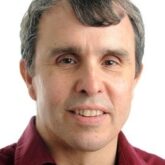
Eric Betzig, Ph.D.
Position/Education: Dr. Betzig is a Group Leader at the Janelia Research Campus of the Howard Hughes Medical Institute. He received his B.S. in Physics from Caltech in 1983 and his Ph.D. in Applied and Engineering Physics from Cornell in 1988. He is co-recipient of the 2014 Nobel Prize in Chemistry for the development of super-resolved fluorescence microscopy.
Research: Dr. Betzig’s lab develops novel optical imaging tools for molecular biology, cellular biology, developmental biology, and neurobiology. These include super-resolution microscopes that image cells down to the macromolecular scale, light sheet microscopes that image rapid dynamic processes in 3D, and adaptive optical microscopes that preserve high quality imaging deep inside multicellular organisms.
Dr. Betzig will speak on “Imaging Life at High Spatiotemporal Resolution.”
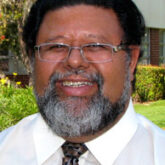
Marino de Leon, Ph.D.
Position: Marino De Leon is professor in Physiology and Neurobiology and founding director of the Loma Linda University Center for Health Disparities and Molecular Medicine, an NIH/NIMHD COE. He also serves as a PI and program director of the NIGMS/NIH Initiative of Maximizing Student Development Program and Director of the LLU Health Disparities Research Summer Program and the Office of Student Development at Loma Linda University School of Medicine.
Education: Dr. De Leon obtained his undergraduate and master degrees in biology from the University of Puerto Rico, Rio Piedras, and a Ph.D. in Physiology from the University of California, Davis. He served as a postdoctoral scholar at Stanford University School of Medicine and Staff fellow at the NIDCR/NIH.
Research: Key areas of Dr. De Leon’s interest are in restorative neuroscience and health equity/disparities. His research team uses genomics, metabolomics and cellular approaches to study neuroprotection, neuronal injury/nerve regeneration and pain, including the modulation of these processes by fatty acid binding proteins and omega 3 fatty acids. Effort on health disparities research focuses in investigating linkages between cellular and social stressors in addressing health disparities in trauma and diabetes. Theses efforts also include the development and implementation of evidence-based educational interventions to increase diversity in the biomedical workforce.
Achievements: Dr. De Leon’s research has been supported by awards from the NIH, NSF and private foundations. This research has lead to the identification of novel injury associated genes important in nerve function and repair. His work on workforce diversity programs has led to develop training programs part of a pipeline that has helped hundreds of URMs students to matriculate in STEM/biomedical disciplines. Dr. De Leon has served in numerous NIH/federal review panels and academic boards nationwide and his work has been recognized by numerous honors and awards.
Dr. De Leon will speak on “A Multifaceted Approach to Address Health Disparities.” The Diversity Symposium is supported by the Burroughs Wellcome Fund.

Amanda M. de Mestre, Ph.D.
Position: Amanda M. de Mestre, Ph.D., is a Senior Lecturer in Reproductive Immunology in the Department of Comparative Biomedical Sciences at The Royal Veterinary College, London, United Kingdom.
Education: Dr. de Mestre completed her clinical veterinary training (B.V.Sc. [hons]) at the University of Sydney, Australia, after which she worked as a clinician in the field of equine reproductive and neonatal medicine. She then received a Ph.D. in Biomedical Sciences in 2006 from the John Curtin School of Medical Research, Australian National University, Australia, for which she was the recipient of the Frank Fenner Medal and Dewar Prize. Her postdoctoral training that followed was under the mentorship of Professor Douglas Antczak at Baker Institute for Animal Health, Cornell University. During this time, she demonstrated the innate immunoregulatory properties of equine trophoblasts. In 2008, she was appointed to faculty at the Royal Veterinary College where she established her current research program in placental immunobiology.
Research: Dr. de Mestre’s laboratory studies molecular mechanisms that regulate early placental development and function in normal and failing pregnancies. Her laboratory demonstrated the involvement of BMP-dependent pathways in the regulation of equine trophoblast differentiation in vivo via SMAD1/5 signalling. Recent work has led to the identification of a number of transcription factors that directly and indirectly regulate eCG-beta expression. In collaboration with clinical colleagues, her laboratory has developed a method to isolate, culture, and study trophoblast cells from failed, early equine pregnancies. Current work is defining the genetic characteristics of these cells and how they may contribute to pregnancy failure in the first two months of gestation.
Achievements: Dr. de Mestre’s work has been funded by The Wellcome Trust, The Royal Society, Horserace Betting Levy Board, and Thoroughbred Breeders Association, UK. In 2015, she was awarded the Society for Reproduction and Fertility New Investigator Award for her research achievements.
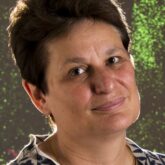
Catherine Dulac, Ph.D
Position: Catherine Dulac is a Howard Hughes Medical Institute Investigator, Higgins Professor of Molecular and Cellular Biology, and former Chair of the Department of Molecular and Cellular Biology in the Faculty of Arts & Sciences at Harvard University.
Education: Dr. Dulac graduated from the Ecole Normale Supérieure, Paris, received her Ph.D. from the University of Paris VI at the Institute of Molecular and Cellular Embryology (Nogent-sur-Marne), and was a postdoctoral fellow at Columbia University.
Research: Dr. Dulac’s work explores the molecular and cellular architecture of neural circuits underlying instinctive social behaviors in the mouse, and she is investigating the nature and function of genomic imprinting in the developing and adult brain.
Achievements: Dr. Dulac is a recipient of the Liliane Bettencourt Prize, the Richard Lounsbery Award, the Perl/UNC Neuroscience Prize, the IPSEN Foundation Neuronal Plasticity Prize, and the National Academy of Sciences’ Pradel Research Award.
She is a member of the National Academy of Sciences, and a fellow of the American Academy of Arts and Sciences and of the American Association for the Advancement of Science. She is also a member of the French Academy of Sciences, Institute of France, and a Chevalier de la Legion d’Honneur.
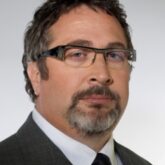
Scott C. Fahrenkrug, Ph.D.
Position: Dr. Scott Fahrenkrug is President of Recombinetics, Inc., a biomedicine and livestock research company in Saint Paul, Minnesota. He is also an Associate Professor at the University of Minnesota (UMN), St. Paul, Minnesota, and Director of UMN’s Animal Biotechnology Center. Additionally, Dr. Fahrenkrug is Adjunct Faculty at the Animal Reproduction Institute, Guangxi University, Nanning, China, and a Distinguished Visiting Professor at Jiangsu Animal Husbandry & Veterinary College, Taizhou, China.
Education: In 1996, Dr. Fahrenkrug received his Ph.D. in Molecular, Cellular, Developmental Biology, and Genetics from the University of Minnesota. His postdoctoral work was conducted at the University of Maryland Biotechnology Institute, College Park, Maryland, and the USDA Meat Animal Research Center, Clay Center, Nebraska.
Research & Achievements: Dr. Fahrenkrug has more than 20 years of documented research experience in monitoring, mapping, and manipulating the vertebrate genome including pigs, cattle, sheep, and zebrafish. As a Molecular Biologist at the USDA, he was lead scientist in the sequencing of the porcine transcriptome and genetic mapping in pigs, cattle, and sheep. As a faculty member at the University of Minnesota, he implemented transposon and recombinase- based systems for pig genome supplementation. In addition, Dr. Fahrenkrug’s lab developed diagnostic tools for assessing the expression and structure of the pig and bovine genomes, including oligonucleotide-based microarrays and livestock genome browsers.
These tools are all being brought to bear on the development of pig models of human disease and development of humanized or exogenic organs in pigs for transplantation therapy. Dr. Fahrenkrug’s academic and business laboratories were the first in the world to develop and apply TAL-effector nucleases, RGENs, and the Sleeping Beauty transposon system to livestock genomes. In the present application, his labs are excited to leverage on innovative gene-editing platforms towards the goal of humanizing the pig to serve as a platform animal for exogenesis and xenotransplantation.
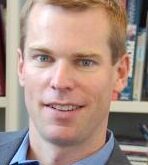
Trey Ideker, Ph.D.
Position: Dr. Trey Ideker is a Professor in the Departments of Medicine and Bioengineering at the University of California, San Diego. In administrative roles, he is Co-Director of the Cancer Genomics and Networks program at the UCSD Moores Cancer Center, and also Director of the San Diego Center for Systems Biology, which has a major cancer research component.
Education: At the Massachusetts Institute of Technology, Dr. Ideker did undergraduate studies in Electrical Engineering and Computer Science; he earned his Ph.D. in Molecular Biotechnology at the University of Washington in 2001. Following this, he was a Whitehead Fellow at the Whitehead Institute for Biomedical Research.
Research: Research in Dr. Ideker’s laboratory focuses on mapping the molecular networks underlying cancer and using these networks to guide the development of novel therapies and diagnostics. This experience is particularly relevant to the lab’s current work on defining and analyzing the genetic networks underlying tumorgenesis. For network analysis, Dr. Ideker’s lab has developed the Cytoscape network analysis platform along with a variety of algorithmic approaches, including network alignment, evolutionary comparison, and the study of network dynamics and (re)organization across conditions.
Achievements: In 10 years teaching as a professor at UCSD, Dr. Ideker has trained 18 postdoctoral scholars, 26 graduate students, and 17 undergraduate students. He is on the Executive and Admissions Committees for the UCSD Ph.D. Program in Bioinformatics and Systems Biology, and has mentored students in numerous departments campus-wide, including Biomedical Sciences, Biology, Bioengineering, and Computer Science. Dr. Ideker currently serves on the Editorial Board of PLoS Computational Biology, Cell Reports, DNA Repair, Scientific Data, Molecular Systems Biology, and Cell. Dr. Ideker was elected a Fellow of the American Institute for Medical and Biological Engineering (AIMBE) in 2014, and Fellow of the American Association for the Advancement of Science (AAAS) in 2015. He has served on numerous advisory boards and review panels, and is the recipient of multiple NIH grants.
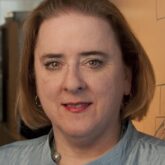
Elaine Ostrander, Ph.D.
Position: Dr. Elaine Ostrander is Chief of the Cancer Genetics and Comparative Genomics Branch at the National Human Genome Research Institute of NIH.
Education: In 1987 Dr. Ostrander received her Ph.D. from the Oregon Health Sciences University, and did her postdoctoral training at Harvard and Berkeley. She then moved to the Fred Hutchinson Cancer Research Center and University of Washington where she stayed for 12 years, rising to the rank of Member and Professor. She moved to NIH in 2004, where she took on the job of Chief of Cancer Genetics Branch at NHGRI.
Research: Dr. Ostrander’s group focuses on the genetics of complex disease traits including diseases such as cancer, in both dogs and humans; and the genetics of canine morphologic features such as body size, leg length, and skull shape in dogs.
Achievements: Dr. Ostrander has published over 285 papers and articles. She has won multiple awards, including the American Cancer Society Junior Faculty Award, Burroughs Welcome Award for Functional Genomics, Asa Mays Award, and Lifetime Achievement Awards for both her prostate cancer and her canine genetics work. She has served on many boards and review panels. In 2013, she won the prestigious Genetics Society of America Medal.
She will speak at the 2016 Annual Meeting about her work on canine genetics.
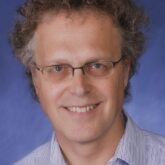
Yoel Sadovsky, M.D.
Position/Education: Yoel Sadovsky, M.D., is the Director of Magee-Womens Research Institute, and the Elsie Hilliard Hillman Chair of Women’s Health Research and Professor of OBGYN, Microbiology, and Molecular Genetics at the University of Pittsburgh. He received his M.D. degree from the Hebrew University in 1986, followed by OBGYN residency at Washington University and maternal-fetal medicine and postdoctoral research fellowships at UCSF. He then returned to Washington University and served as Director of the Division of Maternal-Fetal Medicine between 1999-2007. In 2007, he assumed Directorship of Magee-Womens Research Institute. He was appointed Associate Dean, Women’s Health Research and Reproductive Sciences in 2014, and Distinguished Professor of OBGYN and Reproductive Sciences in 2015.
Research: Building on his clinical expertise in maternal-fetal medicine, Dr. Sadovsky seeks to decipher molecular processes underlying human placental differentiation, function, and adaptation to injury. A primary focus in his lab is the function of trophoblast-specific microRNAs that govern placental response to hypoxia, resistance to viruses, and trafficking of microRNAs among the maternal, placental, and fetal compartments. Dr. Sadovsky also analyzes trophoblast utilization of metabolic fuels, emphasizing the mobilization of fatty acids that are essential for fetal development.
Achievements: Dr. Sadovsky’s laboratory is funded by several NIH grants, and his investigation has resulted in more than 140 articles and 20 chapters and invited publications. He previously served as a member of the NICHD Council and currently serves on the NICHD Board of Scientific Directors. He also serves as an Editor for the journal Placenta. In 2004, Dr. Sadovsky received the Society for Gynecologic Investigation’s (SGI) President’s Achievement Award, and is the President-elect of the society for 2016–17. He was elected to the Institute of Medicine in 2013, and to the Association of American Physicians (AAP) in 2014. In 2013, Dr. Sadovsky was awarded the Cozzarelli Prize in biomedical science from the National Academy of Sciences.
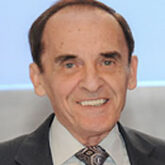
Frank Z. Stanczyk, Ph.D.
Position: Dr. Stanczyk is Professor of Research in the Departments of Obstetrics and Gynecology, and Preventive Medicine (Keck School Of Medicine, University of Southern California). He is also Director of the Reproductive Endocrine Research Laboratory.
Research: His laboratory is recognized nationally and internationally for its expertise in the measurement of steroid, peptide and protein hormones, cytokines and inflammatory markers in serum/plasma, as well as steroid hormones in and a variety of tissues. Dr. Stanczyk’s expertise is in metabolism, pharmacokinetics and measurement of natural and synthetic steroids. His research interests include metabolism and pharmacokinetics of estrogens and progestogens used in the treatment of postmenopausal women and for contraception; different routes of administration of estrogens, progestogens and androgens; impact of aging and obesity on pharmacokinetics and pharmacodynamics effects of hormonal therapy in postmenopausal women; alternatives to traditional hormonal treatment of postmenopausal women; hormone dynamics in the perimenopausal woman; role of steroid hormones in the etiology of breast and prostate cancers, as well as in Alzheimer’s disease; insulin receptor defects and markers of adiposity in polycystic ovarian syndrome.
Eric Vilain, M.D., Ph.D.
Position: Eric Vilain, M.D., Ph.D., is a professor of Human Genetics, Pediatrics and Urology in the David Geffen School of Medicine at UCLA. He is the chief of Medical Genetics, the co-director of the Clinical Genomics Center and the director of the Center for Gender-Based Biology at UCLA.
Education: He earned his M.D. from the Paris Children’s Hospital Necker, his Ph.D. from the Pasteur Institute in Paris, France, and then completed a post-doctoral Fellowship in Medical Genetics at the University of California, Los Angeles.
Research: His laboratory explores the genetics of sexual development, focusing on the molecular mechanisms of gonad development, as well as on the genetic determinants of brain sexual differentiation, including sexual orientation and gender identity. He has identified a large number of mutations in sex-determining genes, and developed animal models with atypical sexual development.
Achievements: He has received numerous awards, notably from the National Institute of Health, the March of Dimes, the Doris Duke Charitable Foundation and the Society for Pediatric Research and has published extensively in the field of sexual development. He is a fellow of the American College of Medical Genetics, a member of International Olympic Committee on Hyperandrogenism in Athletes and a member of the Board of Scientific Counselors for the National Institute of Child Health and Human Development (NICHD).
Dr. Vilain will be presenting “Disorders/Difference of Sex Development: A World of Uncertainties”.

